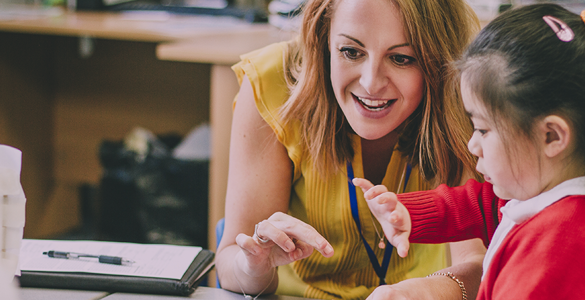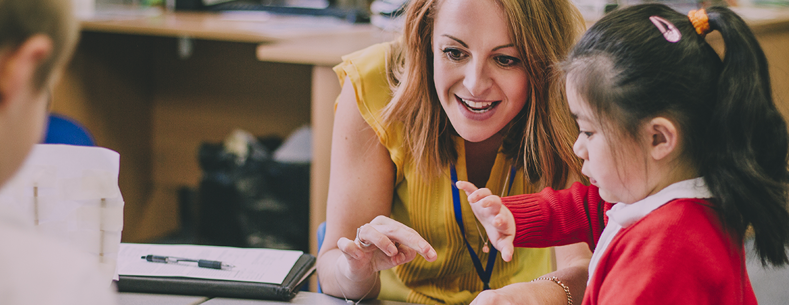On 6 February 2019, the National Assembly will hold a debate on the Petitions Committee’s report on improving access to education and services in British Sign Language [PDF 419KB]. The petition, which collected 1,162 signatures, was submitted by Deffo! a forum for Deaf young people. The petition called on the Welsh Government to improve access to education and services in British Sign Language (BSL) to improve the quality of life for D/deaf people of all ages.
BSL is a visual, spatial language that has it’s own grammatical structure and syntax. As a language it is not dependant nor is it strongly related to spoken English. The British Deaf Association state that there are approximately 7,200 BSL users in Wales, 4,000 of whom are D/deaf. The Welsh Government recognised BSL as a language in its own right in January 2004.
What do the Petitioners want?
The petition calls for:
- Improved access for families to learn BSL;
- The introduction of BSL in the National Curriculum;
- Improved access to education in BSL for D/deaf children and young people;
- Making services and resources accessible in BSL for D/deaf young people.
Learning BSL
In their evidence, the Petitioners stressed the importance of the early acquisition of BSL for D/deaf children. They also argued that there should be free or subsidised BSL lessons for hearing parents and siblings of D/deaf or hard of hearing children. The Petitioners want BSL to be recognised as a minority language by the Welsh Government and for local authorities to consider it to be the first language of many D/deaf and hard of hearing young people.
BSL in the curriculum
The Petitioners told the Committee that the majority of D/deaf children in mainstream schools do not have access to BSL, but are taught Sign Supported English (SSE). They said that SSE does not transfer more widely and that D/deaf children must still learn BSL to communicate with other members of their own community. The argued that if BSL were to be included within the National Curriculum, it would allow other learners to communicate with D/deaf or hard of hearing people in social, learning and other contexts, as well as benefiting D/deaf or hard of hearing learners.
Improving access to education
The Petitioners said that many Teachers of the Deaf (a qualified teacher, who is additionally qualified to teach deaf children) do not have a specific BSL qualification and that many are being replaced by teaching assistants. They said that many Teachers of the Deaf were expected to retire within 15 years.
The Petitioners said that as there are no national benchmarks or standards, there is inconsistency in the provision of education for D/deaf or hard of hearing learners.
Services and resources for D/deaf young people in BSL
The Petitioners want to enable BSL users to access information, in their preferred language, about the services they use, such as education, health care, social services and public transport. The Petitioners said that they felt ‘demoralised’ at their inability to access such services.
Committee recommendations
The Committee made four recommendations.
- The Welsh Government should support BSL as a minority language and encourage local authorities to recognise it as the first language of D/deaf Children and young people when providing education and services;
- The Welsh Government should develop a national charter for delivery of services and resources;
- That the opportunity to learn BSL is available to children at all levels of education and the Welsh Government continues to explore the creation of a GCSE BSL first language qualification;
- The Welsh Government continues to engage with the Welsh Local Government Association on workforce planning with a particular emphasis on teachers working with D/deaf and hard of hearing children and young people.
The Welsh Government’s response accepted three of the recommendations. The Welsh Government acknowledged that there are a number of issues being faced by members of the D/deaf community in Wales in relation to BSL. They said that they would be reviewing the provision of BSL and work with local authorities and other partners to consider developing an national charter for delivery of services and resources to D/deaf children, young people and their families.
A report, Local authority special educational needs specialist services workforce data [PDF 726 KB] was published in July 2018. This included data on hearing impairment specialists.
The recommendation relating to the curriculum was accepted in principle. During the course of the Petition’s consideration, the Welsh Government accepted the recommendations of Professor Graham Donald’s review of the national curriculum in Wales, Successful Futures (February 2015, PDF 2MB] (further information on the new curriculum can be seen in our blog on 23 January 2019) . The Minister for Education, Kirsty Williams has said that International Languages will be part of the Languages, Literacy and Communication Area of Learning and Experience within the new curriculum. This would include modern foreign languages, community languages, classical languages and BSL. However, it will be for each school to decide what International Language they teach.
The Children’s Commissioner’s concerns
In her Annual Report for 2016-17 [PDF 2.54MB], the Children’s Commissioner for Wales expressed her concerns about access to BSL learning opportunities for D/deaf children and their families; the lack of support in mainstream education; a lack of positive role models for D/deaf children; and, a lack of parity in standards of language-related qualifications required to teach D/deaf children.
The Children’s Commissioner recommended that the Welsh Government and local authorities should ensure appropriate state support for the communication needs for D/deaf and hearing impaired children and young people and their families, including accessible and affordable BSL learning opportunities at a range of levels. She recommended that the employment of staff in schools who are fluent communicators of BSL, to meet individuals’ needs. The Welsh Government accepted [PDF 544KB] this recommendation in November 2017.
Auditor General for Wales’ report
The Auditor General for Wales published a report, Speak My Language: Overcoming language and communication barriers in public services , [PDF 1.2MB] in April 2018. The report looked at how public bodies providing front-line services, provide interpretation and translation services for BSL and other languages. This recommended that public bodies regularly review the accessibility of their services to people who do not speak English or Welsh as a main language including D/deaf people who use sign language. The Auditor General also made recommendations about the supply and qualifications of interpreters.
Article by Siân Hughes, National Assembly for Wales Research Service








